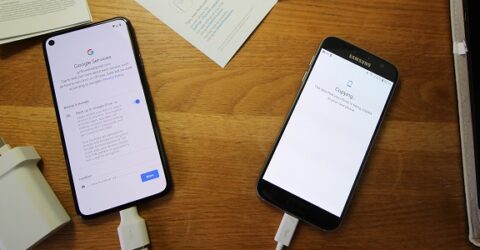How to get broadband without without a landline in 2023
It’s quite possible to live without a landline nowadays, and in many cases, it won’t affect your broadband provision.

The UK’s broadband infrastructure is a patchwork quilt of legacy hardware, different service providers, competing cable networks and widely varying technologies.
Residents on a new-build estate will often have a choice of full fibre broadband connections pre-cabled into their homes before they move in.
By contrast, the occupants of a traditional country cottage may still be reliant on Fibre to the Cabinet (FTTC) broadband, with data trundling along an analogue phone line.
Phone lines have been a major casualty amid the rollout of full fibre broadband, since the latter no longer depends on the former.
Gone are the days when you needed to dial into the internet, or even have an active Openreach line in your home (if you have full fibre, at least).
With this key reason for retaining a landline no longer applicable, it’s worth considering how easy it is to live without a landline nowadays.
Would removing this one-time staple of domestic connectivity adversely affect your ability to communicate?
Call me maybe
Having established that only ADSL and FTTC connections (limited to 65Mbps or less in terms of download speeds) need a phone line, what else are landline refuseniks missing out on?
Many people prefer to receive important phone calls through their landline. Mobile networks are prone to signal dropouts, crackly reception and inadvertent disconnection.
It’s a lot easier to accidentally press the wrong button and hang up on a call using your mobile than it is with a house phone.
That’s significant if you regularly make or receive calls to do with important matters like medical issues, or calls from work clients and colleagues.
Even so, any service provider will accept a mobile phone number nowadays. The stipulation to enter a landline into registration forms has long since been dropped.
Many businesses and service providers prefer being given a mobile number, since they can also send SMS messages for appointment reminders, delivery notifications and suchlike.
Perhaps a bigger issue is being unable to differentiate important calls from less important ones, which is something you can do with two inbound phone lines.
Give friends and relatives your mobile number, so if it rings in the cinema, you know it’s urgent. Give everyone else the landline, which you can ignore in certain circumstances.
If your mobile phone is already used for work calls and you don’t have a landline, it’ll need to juggle professional, personal and non-essential calls, which is a lot for one number to handle.
Aren’t traditional landlines being abolished anyway?
Openreach is planning to retire the UK’s analogue phone network by the end of 2025 – less than three years from now.
Any landlines will become digital, running through the same fibre broadband network as data using a process called Voice over Internet Protocol (VoIP).
This will mirror the television switchover that occurred over a decade ago.
Few people noticed when analogue TV signals were switched off in October 2012, because services were seamlessly transferred to a new digital format.
Replicating this process for landlines will finally uncouple them from broadband provision, making the house phone entirely optional – and hopefully free of crackling.
Will I save money if I live without a landline?
Landlines used to be part of the triple-play and quad-play packages offered by ISPs, alongside mobile phone SIMs, broadband and TV packages.
However, the landlines were often superfluous, with call packages rarely being fully taxed.
What was advertised as an economy of scale was usually an unnecessary expenditure.
Dropping down to a broadband-only package could potentially save a lot of money, especially since there’s no obligation to have a landline on a full fibre broadband package.
It’s only worth paying extra for a landline if it’s of non-monetary value to you, or if you simply don’t want (or trust) mobile networks to handle all inbound and outbound calls.
Review how many times you’ve used your house phone recently (phone bills may be instructive) and evaluate whether that level of activity justifies the cost of maintaining a landline.






